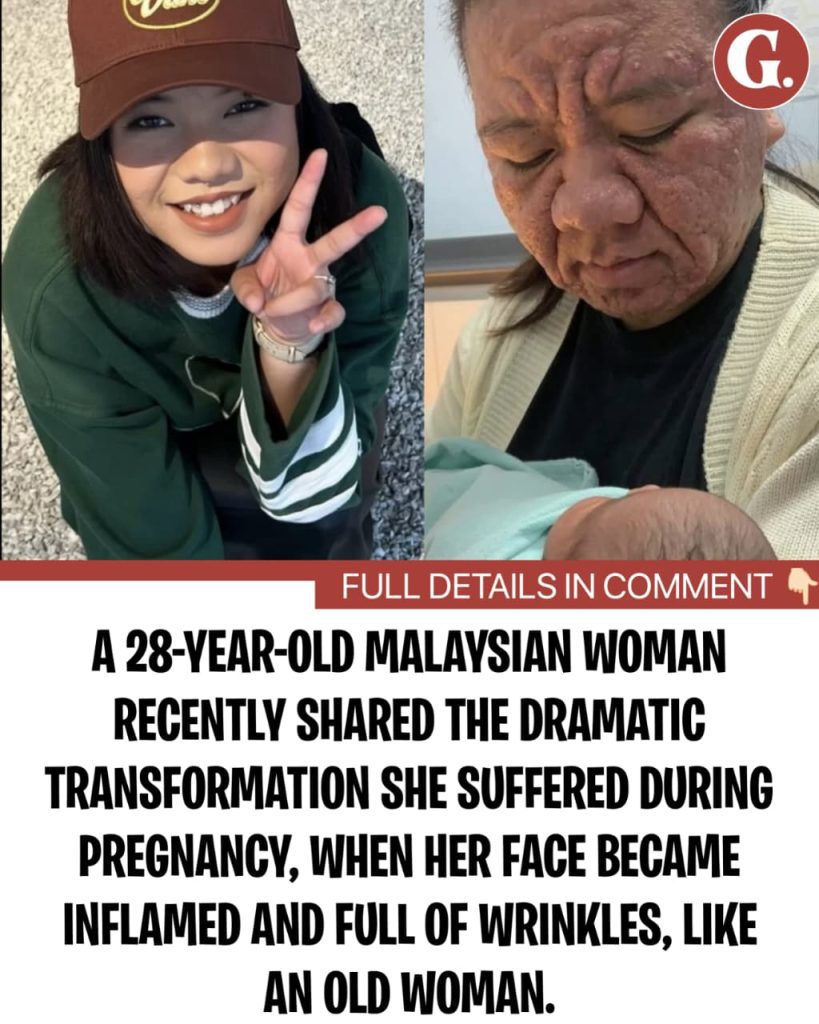A 28-Year-Old Malaysian Woman’s Face Became Inflamed and Wrinkled Like an Old Woman During Pregnancy—The Surprising Hormone-Driven Reason
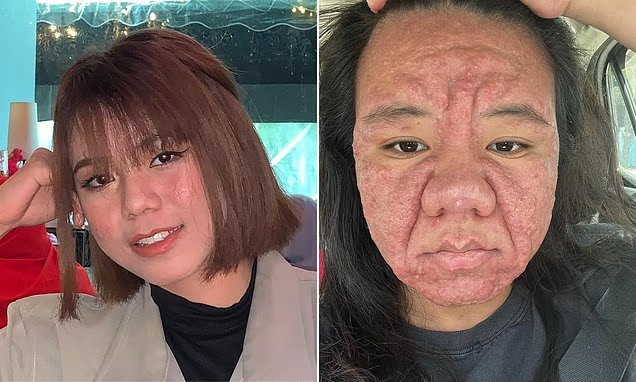
I can still picture the moment I first saw the video. It was just meant to be a glimpse into a woman’s pregnancy journey—but turned into something striking, unsettling, and so real. A 28-year-old woman from Malaysia, Farah Faizal, shared a video on TikTok showing how her face changed dramatically while she was pregnant. In the clip, her skin looked inflamed, deeply creased, and aged—and she didn’t hold back. She didn’t frame it as glamorous. She didn’t hide behind filters. Instead, she whispered quietly into the camera, “This is my journey,” and millions stopped to watch.
She recounted how, early in her pregnancy, she started waking up with pustules scattered all over her face. By the later months—around eight months pregnant—her face had swollen, her nose and ears looked enlarged, and lines and folds appeared so deeply that she looked decades older. It wasn’t just difficult on the surface—it felt unbearable emotionally. Chemicals she used for years didn’t help. She tried everything she’d tried before, and nothing made a difference.
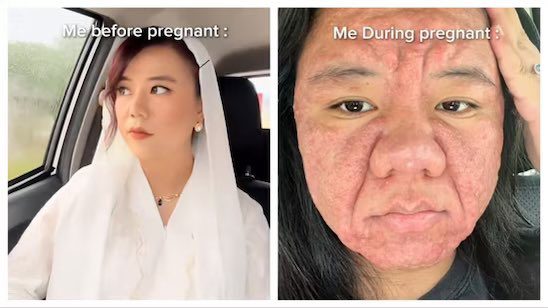
Doctors chimed in to help make sense of it. On Hindustan Times, Dr. Zachary Rubin—without diagnosing her directly—talked about a rare possibility called rosacea fulminans or pyoderma faciale, a severe form of rosacea that shows up as massive red nodules. It shows up suddenly, often in women of childbearing age, and can persist for months before improving. Sometimes, these hormone-driven changes can recede in the postpartum period—and just as slowly as they came on, they begin to fade.
Farah’s online candidness resonated with so many. Her post wasn’t seeking sympathy—it was a mirror for unspoken truths. She said pregnancy isn’t always this glowing, radiant state that magazines and movies make it out to be. Hormones, mental health, physical transformations—they can all hit hard and fast. She wrote powerfully about how the negativity online hurt her more than the physical changes. Some comments were hurtful and dismissive, but she held her ground: “I don’t owe anyone an explanation,” she reminded the world, “but this impacted my mental health. Real skin has texture, real people go through changes.”
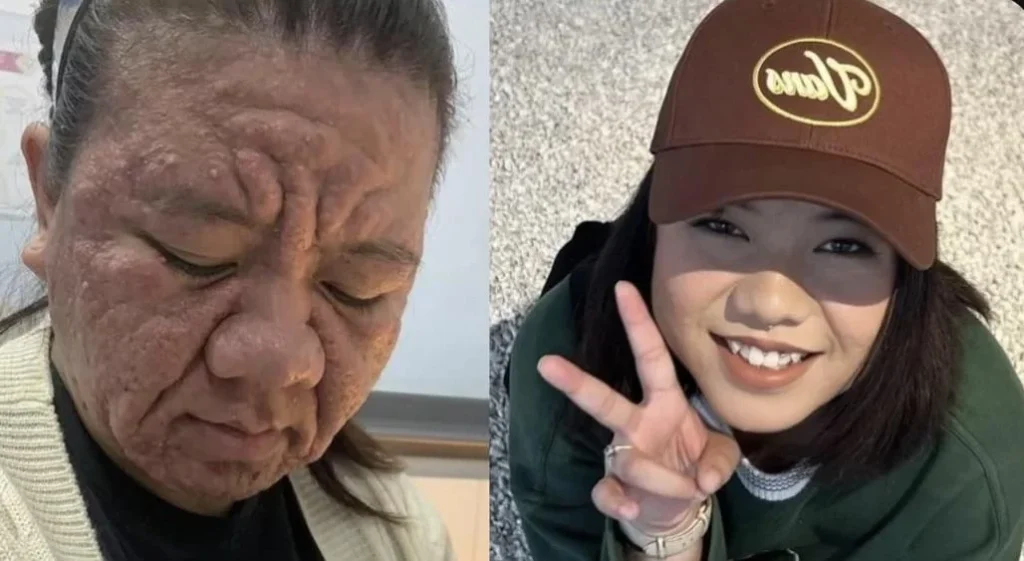
Thankfully, after her baby was born, she began healing. She shared that her skin was improving, that treatments—like laser therapy—were helping, and that her tears and fears were slowly giving way. “I survived nine months of chaos… now I’m a mother,” she wrote. Her husband’s love remained her anchor—he stayed by her side, telling her she was still beautiful, still strong, even when she struggled to believe it.
Stories like Farah’s matter. We hear often that pregnancy is full of joy and connection—but rarely do we hear how raw and real it can feel when something unpredictable happens to your body. Her post, watched by over a hundred million people, reminded me how much women hold inside. How a body changes—skin, mind, identity—and how brave it is to let that vulnerability show.
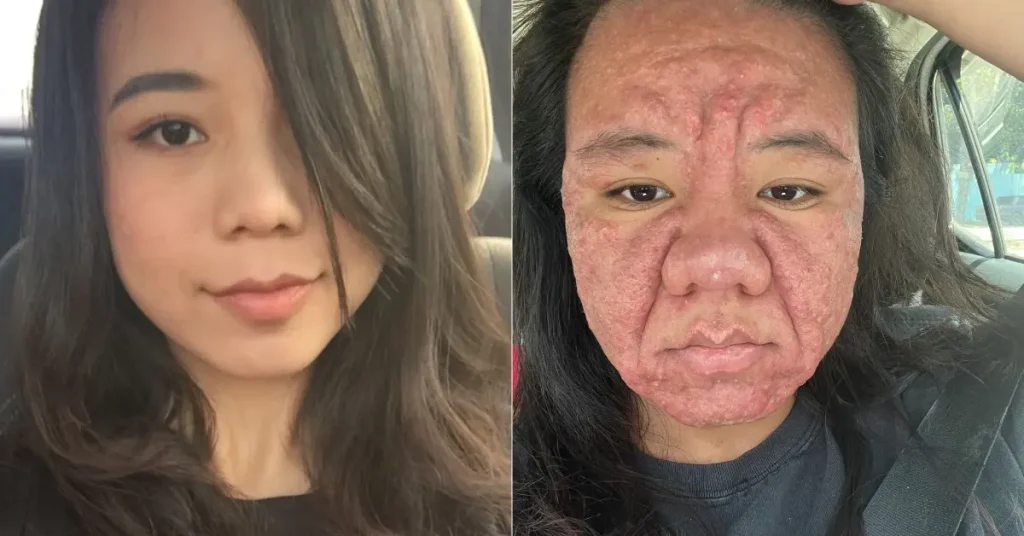
So, yes—a pregnancy did make someone’s face look aged, swollen, textured. But that’s not the heart of the story. The heart is how she faced it—with empathy, emotion, and courage—and how she reminds us all to be kinder to the stories we don’t see. I hope we see more strength like hers, and that people listening after watching her story feel a little less alone.
